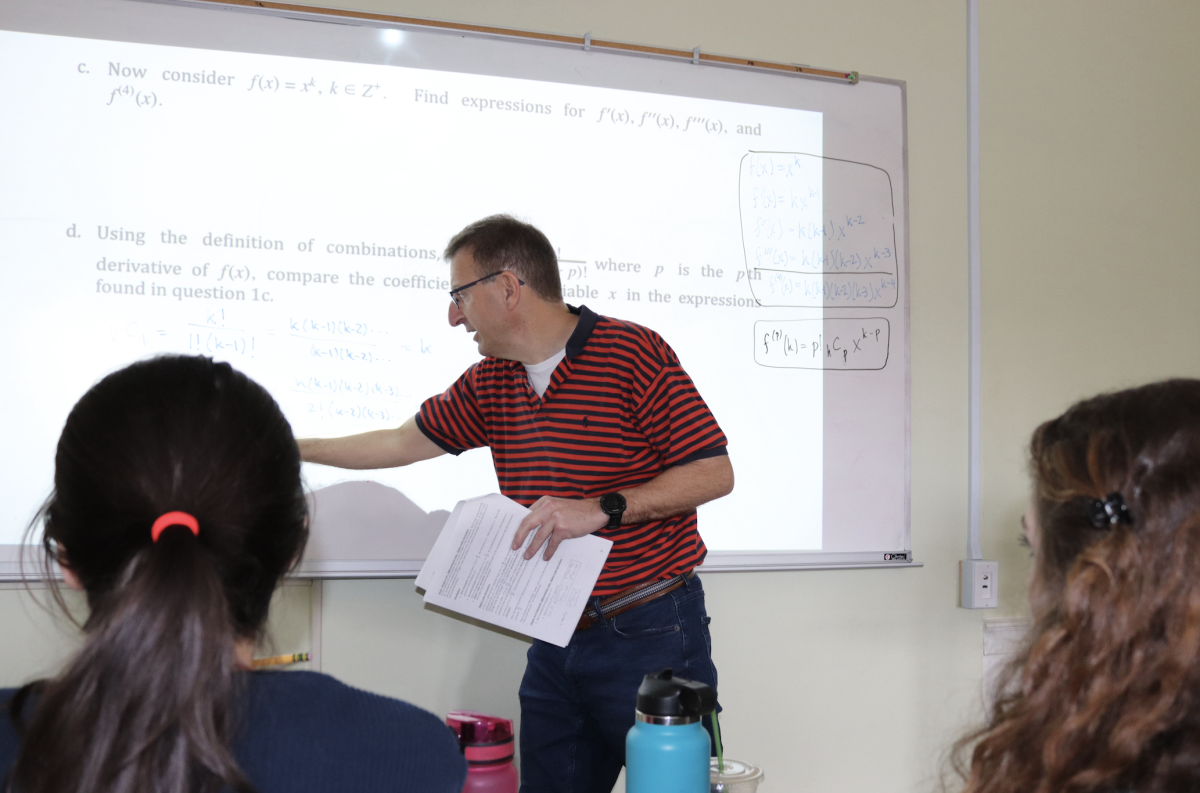The middle school administration opted to replace the seventh and eighth grade advanced and regular math program with integrated math classes for the 2022-2023 school year, as well as subsequent years. The administration had been reconsidering the tracked math program since the IB significantly altered its math curriculum in the fall of 2020, according to Middle School Principal Randy Althaus.
Previously, the IB had offered Math Studies, Math Standard Level (SL), Math Higher Level (HL) and Further Math HL, whereas the current course options are Math Applications and Interpretations SL and HL, which emphasize the real-world applications of math, and Math Analysis and Approaches SL and HL, which combine pure and applied math. The IB made this switch in hopes of boosting student enrollment in math HL courses across the world.
Althaus noticed that WIS’s tracked middle school math program did not align with the IB’s new focus on increasing accessibility to math HL. Students rarely switched between the advanced and regular math courses between seventh and 10th grade, and at the time, WIS mandated that students take 10th grade advanced math in order to take math HL. Consequently, students who were placed in seventh grade regular math effectively lost the opportunity to take HL math, which limited the chances that they would pursue math after high school.
“Seventh grade you is not today you or even 10th grade you,” Althaus said. “Having an impactful [decision] for the IB made at the end of sixth grade was pretty high stakes, and it created a lot of stress and anxiety for people.”
Senior Juan Peltier took advanced math from seventh grade through 10th grade, and he now takes Math Analysis and Approaches SL. He believes that WIS’s tracking system merely weakened students’ self-confidence. “Middle school math was not the most complicated math in the world… I don’t think there was a drastic difference between regular and advanced,” he said. “Having that separation from such a young age just fosters resentment and insecurities.”
Senior Ariana Sabathier took regular math throughout middle and high school, and she now takes Math Applications and Interpretations HL. “I’m one of the only people in HL math that was in regular my entire career before that,” she said. “Everyone just follows the tracks that their teachers deem them to be on… In sixth grade, you’re assigned regular or advanced, and from then on, you feel as if you can only stay in regular or advanced because that’s what they say you’re worthy of.”
During the 2021-2022 school year, the middle school began phasing out the tracked math program: while the current ninth graders remained in their tracked classes from the previous school year, the current eighth graders were placed in integrated math classes. The 2022-2023 school year marks the first time that all middle schoolers have been in integrated math classes since the tracking program’s implementation in the early 2000s, according to Middle School Assistant Principal Kristin Gilliland.
Middle and Upper School math teacher Colin Buck, who teaches eighth grade math, highlighted the challenges of the new integrated math program. “I have seventeen [students] in my class and the ability ranges from those who could do the American Math Competition [(AMC)] to those who are struggling with very basic algebra,” he said.
During his classes, Buck often provides the strongest math students with AMC problems to work on individually while he checks in with students who do not intuitively grasp the subject. Though this method has been successful, he struggles to find a pace that works for all students when teaching the class as a whole. “If you go too slow, some of the students are going to be disengaged, and if you go too fast, some of them are going to just get anxious and not understand,” Buck said.
Althaus acknowledges that this policy shift has led to a “painful point” for middle school math teachers, however, he believes that the administration is helping to ease this transition.
Gilliland meets with the sixth and seventh grade math teachers once a cycle, as well as the eighth grade teachers once a month, to discuss how they can shift their teaching methods based on individual students’ math abilities. Moreover, WIS sent faculty members to the 2022 National Council for Teachers of Mathematics conference, which focused on differentiation and diversity, equity and inclusion in the classroom.
Additionally, Gilliland has provided teachers across all middle school subjects with a common language of differentiation. Teachers are encouraged to frame assignments through the terms “mountainous,” “hilly” and “beach,” in which the former is the most challenging and the latter is the simplest. Students can choose between the three based on what they are most comfortable with, or the teacher can recommend a difficulty level.
Some parents have voiced their concerns about the impact of detracking on strong math students. However, Althaus points to four decades of research on the topic, which show that while detracking clearly boosts low-ability student achievement, it does not have a substantial positive or negative impact on highly gifted students.
Althaus believes that the biggest benefit of changing the middle school math program is that it will prevent the social and emotional costs of the tracking system. “Math is a prestige subject which many regard to be an indicator of success, which it generally isn’t, but it’s perceived to be,” he said. “I have not seen any students cry like I had when we had tracking.”
By Maia Nehme
































































